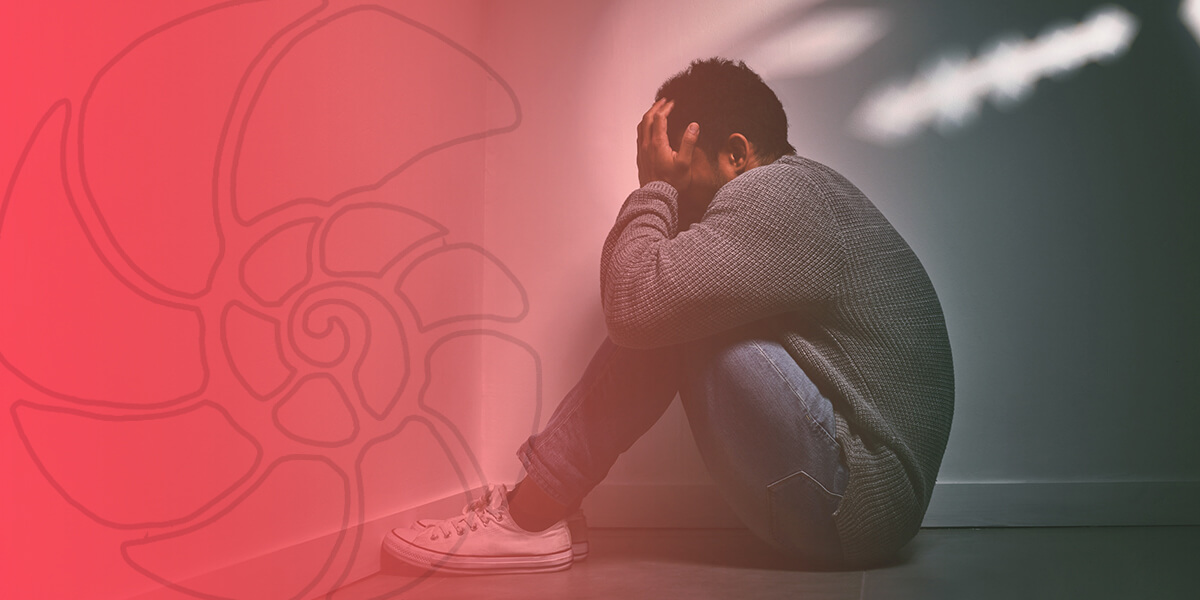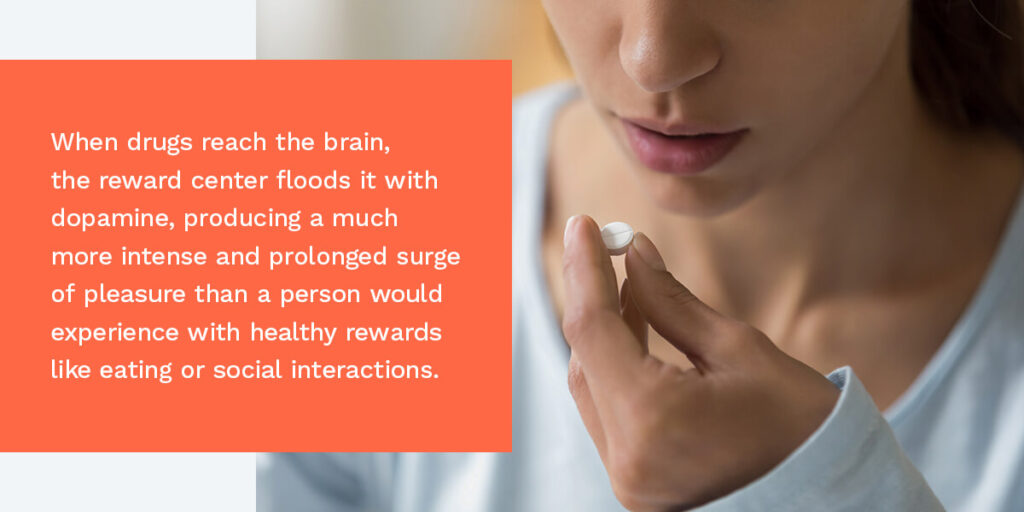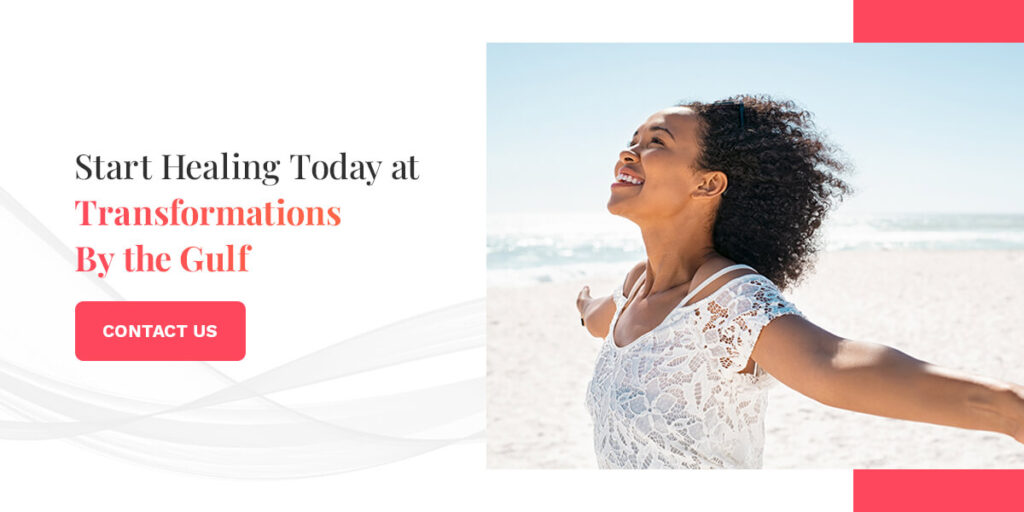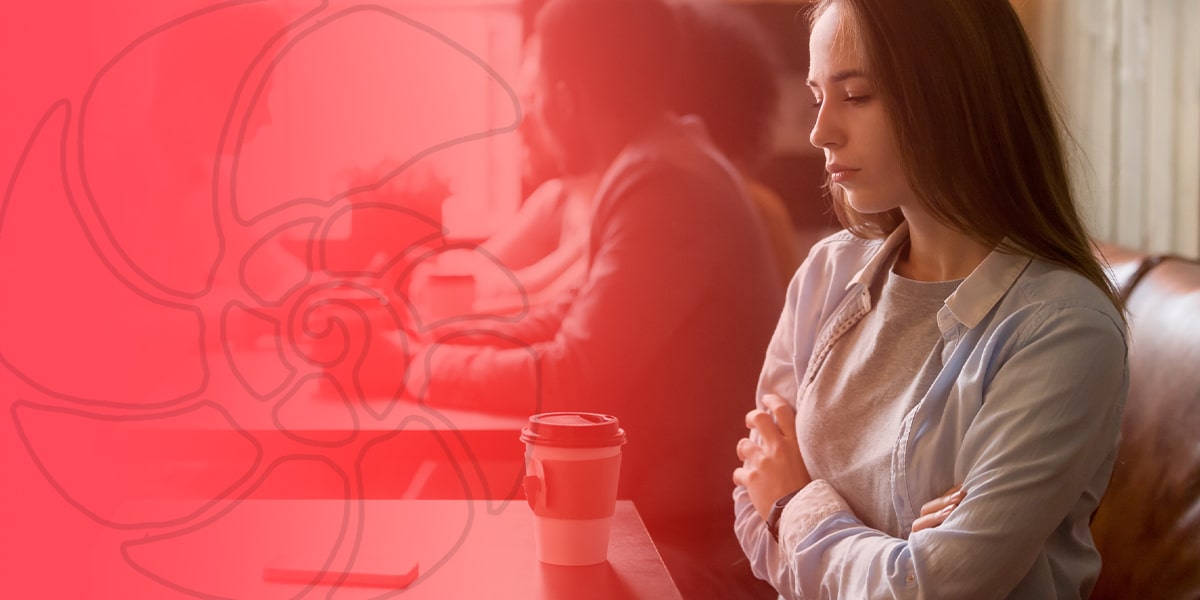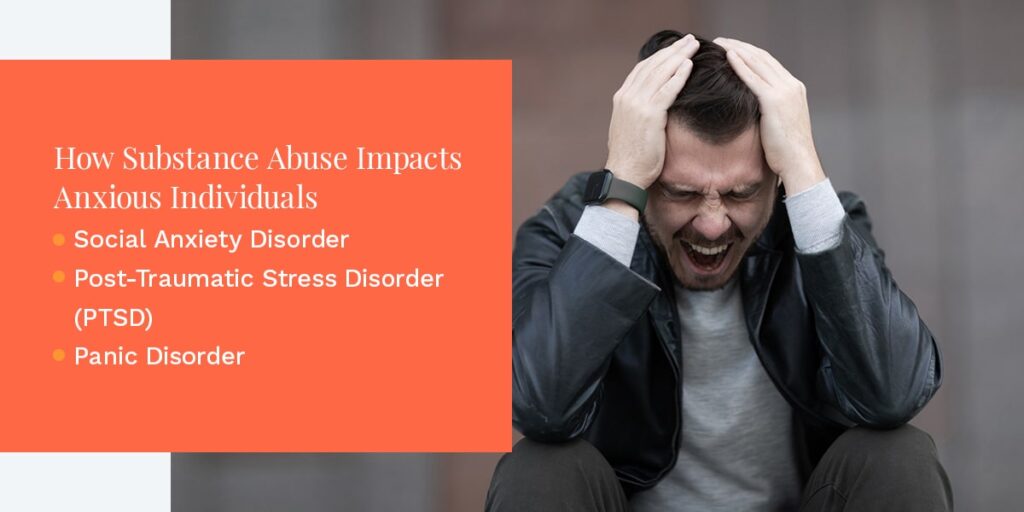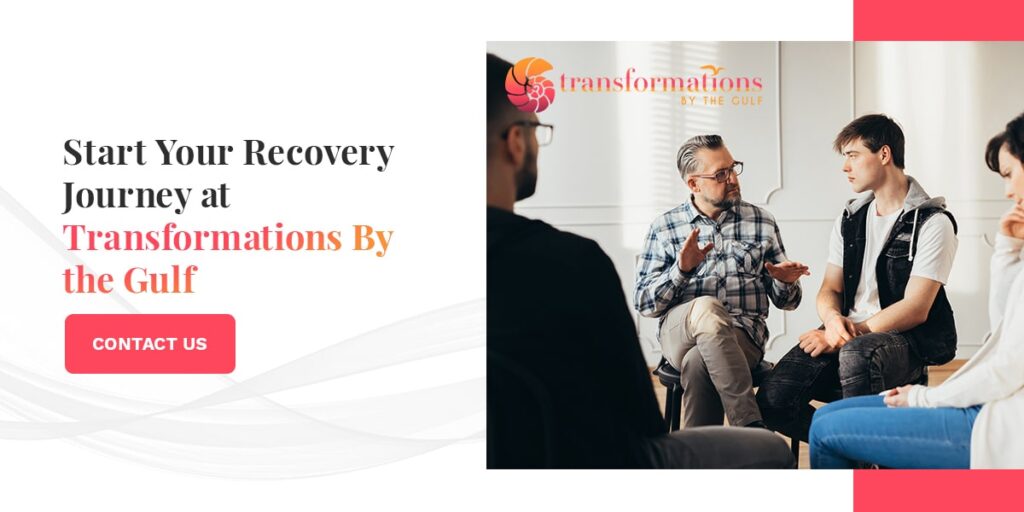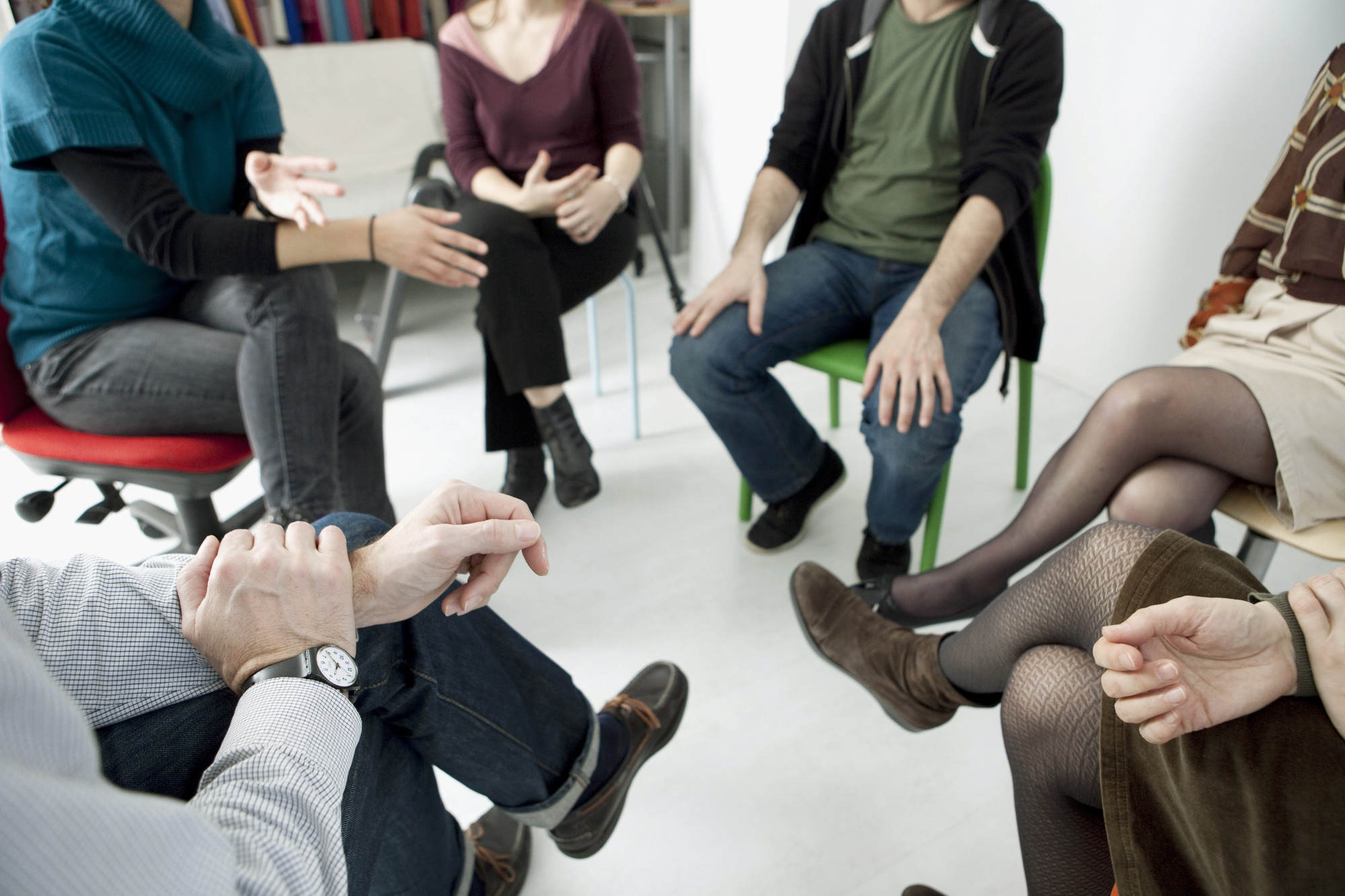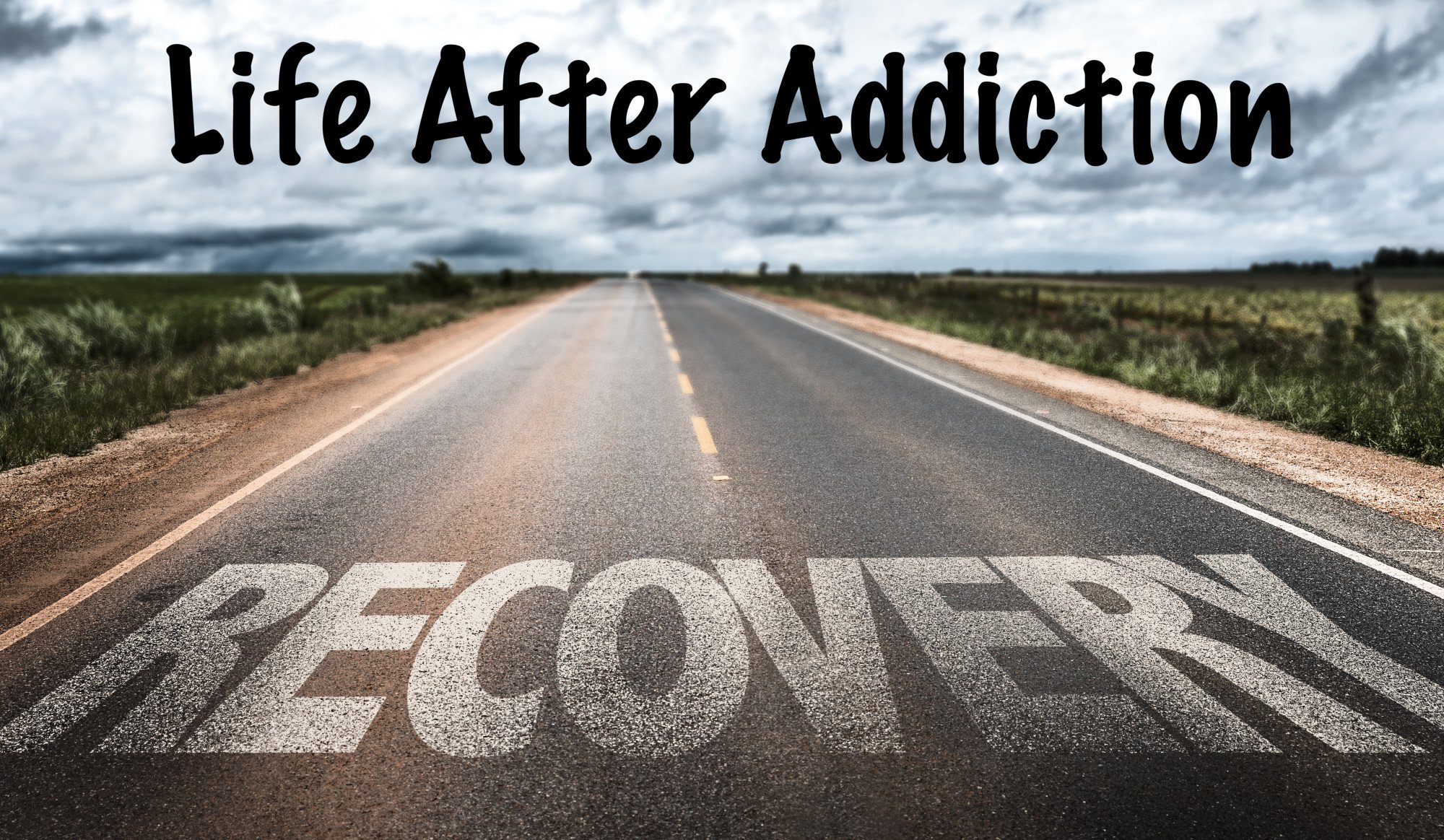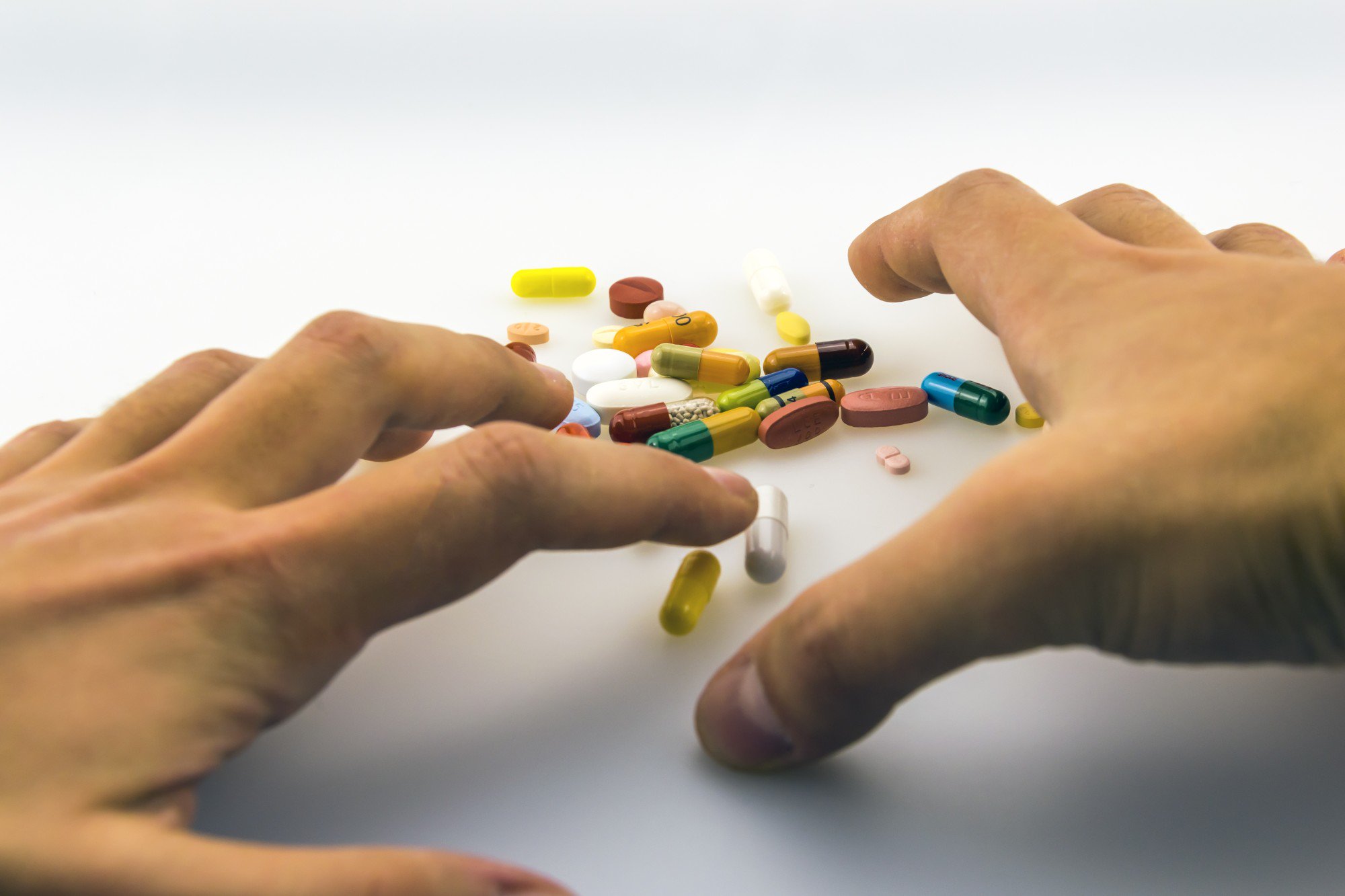What Causes Addiction in the Brain?
Addiction is a complex and often devastating condition that's shockingly widespread — one study revealed that 40.3 million Americans struggled with a substance use disorder in 2020. While the causes of addiction are multifaceted and can vary from person to person, one thing is clear: Addiction is a brain disease.
Researchers have made significant strides in understanding addiction's underlying neural mechanisms and how they contribute to developing and maintaining addictive behaviors. By examining how drugs and other addictive substances interact with the brain's reward system, scientists are uncovering new insights into the nature of addiction and how best to treat it.
Join us as we dive deeper into what causes addiction in the brain and what it means for those struggling.
Understanding the Brain's Reward System
The brain's reward system is a network of neural circuits that plays a crucial role in regulating feelings of pleasure and motivation. At the heart of this system is a group of structures called the basal ganglia, which are involved in positive forms of motivation and forming habits and routines.
When we engage in pleasurable or rewarding activities, such as eating, socializing or having sex, we activate our brain's reward system, which responds by releasing a chemical called dopamine. This dopamine surge produces a sense of pleasure and satisfaction, signaling the brain to remember the activity so it can experience the same feelings again. Neural connectivity changes make it easy to repeat the action over and over again without much thought, leading to habit formation.
There are many ways to trigger dopamine release naturally, including the following:
- Physical exercise
- Listening to music
- Meditating
- Spending time in nature
- Engaging in creative pursuits like painting or writing
- Spending time with loved ones
- Engaging in acts of kindness or volunteering
- Getting enough sleep
- Reducing stress
- Eating a nutritious diet rich in protein and healthy fats
What Causes Addiction in the Brain?
Natural, healthy dopamine triggers aren't the only way to stimulate the brain's reward center. Unfortunately, it can be hijacked by drugs and other addictive substances, leading to an addiction.
Often, people turn to addictive substances when they feel stressed or depressed. When these drugs reach the brain, the reward center floods it with dopamine, producing a much more intense and prolonged surge of pleasure than a person would experience with healthy rewards like eating or social interactions. This process starts to change the brain chemistry, and the person needs increasing amounts of the substance to feel good.
Genetics and environmental factors can also influence addiction. Certain genes may make individuals more susceptible to addiction, while environmental factors like stress, trauma and peer pressure can increase addiction risk. Additionally, early exposure to drugs or alcohol can increase the likelihood of addiction later in life.
What Does the Brain Do During Addiction?
As a person continues to feed their addiction, the brain adapts to the flood of dopamine by reducing the number of dopamine receptors. This is known as building tolerance and means the person needs more and more of the drug to achieve the same level of pleasure.
As addiction progresses, the reward system in the brain of an addict becomes increasingly dysregulated. Pursuing drugs or other addictive substances becomes the individual's primary focus in life, while activities they once enjoyed lose their appeal. This is because the brain's reward system has become hypersensitive to drugs and desensitized to other rewards.
Addiction can also affect a person's focus, learning and memory, as well as their judgment and decision-making ability. The pursuit of drugs becomes a habit rather than a conscious decision.
Addiction can also change other areas in the brain, including the prefrontal cortex and the amygdala. The prefrontal cortex is involved in thinking, planning, problem-solving, decision-making and impulse control. The amygdala helps regulate emotions like irritability, anxiety and unease, which individuals feel when a drug wears off, prompting them to seek more of it.
These changes in brain function can lead to compulsive drug-seeking behavior and a reduced ability to experience pleasure from other activities.
Even when the individual wants to quit their addiction, the brain's reward system can make it incredibly difficult to do so, as the withdrawal symptoms and cravings can be overwhelming.
Can an Addicted Brain Heal?
The good news is that addicted brains can heal. While addiction changes the brain's structure and function, research has shown that the brain has a remarkable capacity for neuroplasticity. Neuroplasticity is the brain's ability to form new neural connections and reorganize existing ones, allowing it to adapt to environmental changes and recover from injury or damage.
Neuroplasticity indicates that the brain is not a fixed, static organ but rather a dynamic and adaptable one that can change in response to learning and new experiences. This means that with the right treatment and support, it's possible for the brain to recover from the effects of addiction.
One of the most essential factors in the brain's ability to heal from addiction is the individual's motivation to change. This motivation can come from many different sources, including a desire to improve one's health, relationships or quality of life.
Another important factor in the brain's ability to heal from addiction is the availability of effective treatments and support. Various evidence-based addiction treatments, including behavioral therapies and medications, have helped individuals overcome their addictions. Emotional support and encouragement from friends, family and peers can also be a key part of recovery.
Remember that addiction recovery is not a one-size-fits-all process, and the healing timeline can vary widely depending on the individual and the severity of their addiction. Some may experience a relatively quick recovery, while others may require ongoing support and treatment to maintain sobriety.
Start Healing Today at Transformations By The Gulf
Addiction is a complex disorder that's largely influenced by brain chemistry. While some people are more susceptible to addiction than others, anyone can develop an addiction upon exposure to substances or behaviors that trigger the brain's reward system.
Understanding the underlying mechanisms of addiction allows us to develop more effective prevention and treatment strategies that address the root cause of this condition. Ultimately, breaking the cycle of addiction requires a combination of medical, psychological and social support to help individuals overcome their dependence and achieve long-term recovery.
If you or someone you care about is ready to heal from an addiction, you can find support at Transformations by the Gulf in beautiful St. Pete Beach, Florida. We offer a combination of holistic practices and traditional therapies to help clients overcome their addictions and reclaim their lives. Get in touch today to discover which programs and services are best for you.
If you or someone you know would like to know more about Transformations by the Gulf Substance Abuse Treatment Center Give us a Call 24/7 (727)498-6498
The success of a person’s recovery depends on the level of personalized treatment provided. It is important to find an addiction treatment program that works. When we say our treatment is individualized, we mean that we craft a program that is tailored to address the client’s unique physical, mental and emotional needs.
In the client’s first 24 hours with us, we’ll evaluate their current state and work to understand what challenges they need to overcome. They’ll also have an initial session with our doctor and meet with one of our licensed mental health professionals.
After the initial evaluations, we’ll design a treatment plan with the sole mission of helping the client overcome and heal from addiction. Their program will focus on things such as:
- Addressing and Identifying root causes of addiction.
- Creating a support system.
- Developing healthy stress management techniques.
- Eliminating Substance use.
- Learning how to communicate emotions effectively.
- Maintaining a healthier lifestyle.
- Repairing damaged relationships.
Our Facility is near the beach and offers a comfortable setting for substance abuse treatment and recovery.
What a Day is Like in Our Treatment Facility.
Why Transformations by the Gulf?
Social Anxiety and Substance Abuse
People with anxiety are more likely to experience substance use disorder at some point in their lives compared to the general population. More than one in four adults who have a serious mental health problem like anxiety also have a substance use problem. These conditions can occur bidirectionally, where anxiety can precede addiction and vice versa.
Social anxiety can severely impact a person's daily life, causing some to self-medicate their symptoms with alcohol or other substances. However, side effects from certain drugs can also worsen anxiety symptoms. Fortunately, anxiety and addiction are treatable. Discover how anxiety relates to substance abuse and how to get help.
How Does Anxiety Relate to Substance Abuse?
While people may experience anxiety and substance abuse independently, these conditions often co-occur, which can be a vicious cycle. In other words, those with addiction also tend to have anxiety or other mental health condition. The relationship tends to occur when people turn to alcohol or drugs to relieve social anxiety symptoms.
Social anxiety is more than just normal nervousness or shyness. It is a condition that brings fear, anxiety and avoidance. These feelings interfere with relationships and make it difficult for people to interact with others. People with social anxiety often experience an intense fear of being watched and judged by others, which can severely impact work, school and other daily activities.
It's common for people with anxiety and alcohol addiction to drink heavily in social situations to relax. They may find drinking helps them loosen up and talk to others more easily. That's because substances like alcohol can lower inhibitions and slow the central nervous system, providing temporary feelings of relaxation and confidence.
While some substances may temporarily provide relaxation, relying on them may lead to unhealthy dependence. And while numbing the anxiety with alcohol or drugs may make you feel better in the short term, substances won't help heal the condition. In fact, anxiety is often a symptom of drug withdrawal, showing how you truly cannot escape anxiety by taking substances.
How Substance Abuse Impacts Anxious Individuals
Substance use disorder can impact already-existing anxiety disorders. People with anxiety may find that alcohol and other substances worsen their anxiety symptoms and create new mental health challenges.
Addiction can also physically damage the body. Rather than gaining control over the anxiety, substances can make you lose control and create challenges that make it even more difficult to get through the day. As a person's body develops tolerance to drugs or alcohol, they need to increase their intake to get the same initial effects. This can lead to a dangerous cycle of addiction that can be challenging to overcome without professional treatment.
Over time, substance abuse and anxiety disorder symptoms can become indistinguishable. Here's how substance use can impact different anxiety disorders:
Social Anxiety Disorder
The co-occurrence of substance abuse, particularly alcohol addiction, is common among people with social anxiety disorder. People with the condition may initially report feeling less anxious when they drink alcohol. However, alcohol often makes social anxiety worse and intensifies symptoms like worry, muscle tension, irritability and poor concentration. Alcohol addiction usually develops after the onset of social anxiety disorder.
Post-Traumatic Stress Disorder (PTSD)
PTSD and addiction commonly occur together. People struggling with PTSD often turn to substances to cope with their anxiety, though they can often intensify PTSD symptoms like anxiety and depression or feelings of numbness, anger or irritability. In fact, parts of our brain are affected similarly by both substance use disorder and PTSD. Studies show chronic exposure to substances can cause long-term changes in our reward processing that might promote an escalation of addiction.
Panic Disorder
Alcohol and other substances can cause panic attacks, and panic disorder is a risk factor for relapse among those with an addiction. People may turn to alcohol after experiencing symptoms of a panic disorder in hopes it will prevent further panic attacks.
Are People With Anxiety More Likely to Get Addicted?
People develop addictions for many different reasons, though research suggests people with anxiety are more likely to develop an addiction. This often occurs because people turn to substances to relieve anxiety symptoms.
As anxiety symptoms progress, many people may turn to substances to avoid their feelings or because they prefer to feel numb than anxious. Substance abuse and anxiety disorder symptoms can often mimic one another, making it difficult to seek treatment.
Common substances associated with anxiety disorders include:
- Benzodiazepines
- Methamphetamine
- Cocaine
- Marijuana
- Stimulants
- Alcohol
Anxiety can go undiagnosed when substance use is involved since many side effects of substances can mask symptoms. You may not even be aware that you have anxiety when you take substances whenever you're feeling stressed. For instance, if you drink daily to relieve anxiety, you might not consider tension a symptom of a mental health condition.
When a person discovers that they have a treatable mental health condition like anxiety, the diagnosis can often provide relief. There are many healthy ways to treat anxiety that don't involve substances. For a successful recovery, you must prioritize both your addiction and social anxiety in treatment.
Social Anxiety Alcohol Alternatives
You can successfully manage your social anxiety without alcohol, but it will take experimenting to find what works best for your needs. Here are a few tips:
- Talk to someone you trust: You can start understanding your anxiety triggers and how to deal with them by discussing them with a trusted person. You might talk to a counselor, 12-step sponsors, friends or family to learn how to cope effectively with your anxiety.
- Challenge negative thoughts: Social anxiety can make you jump to conclusions that aren't rooted in reality. When you start feeling anxious, remember that nothing bad will happen and challenge any harmful thoughts you may have about yourself.
- Practice mindfulness: Anxiety can cause us to dwell on past failures or worry about the future. Mindfulness routines can help you focus on the present and calm symptoms. Options include yoga or deep breathing exercises.
- Exercise: Exercise is an excellent way to combat anxiety. Staying active can help reduce stress, provide a healthy outlet for your emotions and help you sleep better.
- Take care of your body: Anxiety can often come from poor diet and sleep habits. Getting rest and enough nutrition every day can improve your overall health and help you reduce anxiety.
- Consider medication: If you find it challenging to manage your social anxiety through lifestyle changes alone, you can always talk to your health provider about prescription medications to manage the condition.
While you don't need alcohol to manage your anxiety, you might feel pressured to consume alcohol when around others who are drinking. In these cases, you can offer an alternative, such as going for a walk, playing a game or grabbing coffee. And if you find yourself in a challenging situation, remember that you can always leave.
Start Your Recovery Journey at Transformations by the Gulf
Social anxiety and substance use disorder are conditions that often worsen one another. At Transformations by the Gulf, we can help you understand how your anxiety and addiction are connected. Our professional addiction treatment center addresses the causes and symptoms of addiction to help you heal from co-occurring conditions like anxiety. You can begin taking back control of your life and adopt coping skills to achieve a healthier, happier lifestyle.
To start your recovery journey, contact us today.
If you or someone you know would like to know more about Transformations by the Gulf Substance Abuse Treatment Center Give us a Call 24/7 (727)498-6498
The success of a person’s recovery depends on the level of personalized treatment provided. It is important to find an addiction treatment program that works. When we say our treatment is individualized, we mean that we craft a program that is tailored to address the client’s unique physical, mental and emotional needs.
In the client’s first 24 hours with us, we’ll evaluate their current state and work to understand what challenges they need to overcome. They’ll also have an initial session with our doctor and meet with one of our licensed mental health professionals.
After the initial evaluations, we’ll design a treatment plan with the sole mission of helping the client overcome and heal from addiction. Their program will focus on things such as:
- Addressing and Identifying root causes of addiction.
- Creating a support system.
- Developing healthy stress management techniques.
- Eliminating Substance use.
- Learning how to communicate emotions effectively.
- Maintaining a healthier lifestyle.
- Repairing damaged relationships.
Our Facility is near the beach and offers a comfortable setting for substance abuse treatment and recovery.
What a Day is Like in Our Treatment Facility.
Why Transformations by the Gulf?
Transformations By The Gulf Response to the Coronavirus
A Message to Our Customers on Coronavirus
At Transformations by the Gulf, we remain committed to our community throughout the COVID-10 outbreak. Keeping you informed with available news and information about the coronavirus (COVID-19) is a top priority.
PREVENTATIVE PRE-CAUTIONS WE ARE TAKING
- Daily sanitization of all hard surfaces
- Admissions department screening potential clients prior to entering facility
- Proper gloves and masks are worn in the facility
- Increased sanitization throughout common areas
The safety and health of our patients, staff, and community are of the utmost importance.
How Long Does an Intensive Outpatient Program Last?
How Long Does an Intensive Outpatient Program Last?
Outpatient vs. Inpatient Treatment
No matter how long you've had a drug or alcohol addiction, you've got treatment options. The first step toward recovery is to meet with an intake counselor. They will run your insurance, give you a physical and a drug test, and evaluate your mental health.
The intake counselor will also run your insurance and help you decide whether you need an inpatient or an outpatient program. Here are a few key differences:
- Time Commitment. Most inpatient programs last at least one month, sometimes going as long as six months to a year. Do you have that kind of time? If you want to keep your job while you recover, intensive outpatient treatment might be the best choice. Most outpatient programs meet three times per week for eight to 16 weeks.
- Therapy Options. Depending upon the severity of your addiction, you may meet with support staff every day for the first few months. IOP treatment options can include group therapy, individual therapy, and family therapy. Your counseling schedule will be customized to your needs so that you're not losing time with your children or family.
- Support Networks. Do you have any family or friends that you can talk to about your recovery? Are your work colleagues rooting you on? IOP therapy works best when you have people to talk to in addition to your therapist. Outpatient and inpatient programs may require you to attend AA meetings or keep a personal journal.
- Success Rate. The relapse rate for drug and alcohol addiction hovers between 40 and 60 percent. It's not an encouraging figure, but customized intensive outpatient therapy can help make you a success story instead of a statistic. If you relapse, your IOP therapy network will help you detox and get recommitted to your recovery.
Are You Ready for IOP Treatment?
How can you tell if you're ready for recovery? Is getting clean as easy as making up your mind to change?
If you can check off three or more items on this list, you're probably ready to seek treatment for your addiction.
- You've had severe financial problems due to your addiction.
- You've lost time from work or been fired from several jobs.
- Your family has staged an intervention, and you think that they may be right.
- You have a mental health diagnosis and are ready to take medication.
- You sincerely believe that you can get clean and stay clean.
If you have been using drugs or alcohol for many years, you may need to start with medically assisted detox. You would enter a hospital facility for three days to one week and take FDA-approved medications like Suboxone and Vivitrol.
The good thing about medically assisted detox is that it takes you safely past withdrawal symptoms like hallucinations and dangerously high blood pressure. Stopping "cold turkey" isn't a good idea if you're a long-time user.
You could end up having seizures or even a heart attack.
Does Intensive Therapy Really Work?
After you detox, you'll have access to a wide range of therapeutic support. Even if therapy isn't your cup of tea, you should still give it a try.
Group therapy can help you feel less isolated, even if it's a little bit intimidating. You're not required to share your recovery journey, but you might want to step out of your comfort zone.
You might find that your story is inspirational to one of your fellow group members.
One-on-one therapy can be helpful, but you have to trust your therapist. They may want you to discuss personal things like your finances and relationships.
Look for intensive outpatient programs that offer holistic therapeutic options. You may find that going to the gym helps you maintain your peace of mind. That's not traditional "talk therapy" but it's effective.
Other holistic therapy options could include:
- yoga and deep breathing
- acupuncture
- sports massage
- meditation
- volunteering in your community
The good news is that while recovery is a challenge, there are several ways to help it along.
Do You Need an Inpatient Program?
As you progress along your healing journey, your team may recommend that you participate in an inpatient recovery program.
You would receive therapy, medication, and supervision by a team of experts. Where outpatient therapy goes up to four months, inpatient programs typically end after 90 days.
If you have a dual diagnosis or are struggling with homelessness, an inpatient program could help you manage your mental illness and find housing.
You can always transition into one of our outpatient programs after you've completed your inpatient stay.
Find an Intensive Outpatient Program Near You
If you think that you're ready to change your life, you need to take the next step. Call or email your local addiction recovery center and make an appointment to meet in person.
We are committed to providing you with compassionate care that meets your needs. We can help you talk to your family or to your supervisor at work, and we're more than happy to help you make travel plans.
If you would like to talk to us, please call us at any time. We have a helpline that's open 24/7, even on holidays. We are Golden Seal Approved and have an A+ rating with the Better Business Bureau.
We look forward to meeting with you and helping you develop a long-term recovery plan!
Seeking Treatment with Transformations by the Gulf?
If you or a loved one needs treatment and rehabilitation for substance use, Transformations by the Gulf can help. Find out How Long Does an Intensive Outpatient Program Last?
Transformations by the Gulf offers individualistic and holistic recovery services. We designed our inpatient and outpatient programs to treat individuals based on biological, psychological, familial and social needs.
Our residential homes and treatment facilities are near the beach and offer a comfortable setting for rehabilitation. If you or a loved one needs help, contact Transformations By The Gulf to learn more about our recovery services.
If you are ready to start planning your treatment process, give us a call. (727)498-6498
What a Day is Like in Our Treatment Facility.
Why Transformations by the Gulf?
What to Do After Florida Beach Drug Rehab
What to Do After Florida Beach Drug Rehab
During treatment, your counselors will discuss the best options for your personal journey. However, it is often helpful to have an idea of what to expect once you leave the safety of the treatment center.
Everyone's life after addiction is different but we are going to explain the general idea of what to expect. Keep reading for more information!
Finding a Place to Live
Upon leaving treatment, you will need to secure a place to live. Your first thought may include simply going home. However, this is not always the best option for people that are new to recovery.
Going home will place you in the same environment and around the same people. With these two factors, it is likely to return to old behaviors and old ways of thinking.
There are many options available to you and your counselor will recommend the one that best suits your needs. These choices may include staying with a sober friend or family member, moving into a day treatment facility, or opting to live in a sober living home.
Sober living houses are an excellent choice as they group like-minded individuals together and each member helps others stay accountable. Most of these houses offer affordable rent that may be paid weekly and require you to hold a job, attend 12-step meetings, and have a sponsor.
Looking for Work
Many addicts and alcoholics lose their job when they hit rock bottom. Some people may be fortunate enough to return to work, but this is not typical.
Whether you hold a degree or have minimal skills, you will need to find a way to make money. Before jumping into a new career, find something that you enjoy doing and can help pay bills. The goal isn't to become rich; the goal is to stay sober.
People with service industry backgrounds may want to return to waiting tables or tending bar. These jobs often center around alcohol and a party lifestyle. Instead of jumping right back into the same patterns, consider other customer service jobs such as retail or hospitality.
Remember to keep time for yourself and your recovery; some jobs are more understanding than others.
Establish a Routine
Once you find a place to live, you can begin to establish what you want each day to look like. This will likely include whichever job you find, but should also include time for recovery and loved ones.
Keeping a busy schedule and routine will help keep any thoughts about using or drinking as thoughts, not actions. Hopefully, between your new home, job, and sober social connections, you are too busy enjoying life to be tempted with relapse!
Build a Network at a Florida Beach Drug Rehab
In rehab, you will meet many people that have the same goals as you. If you choose to attend AA or NA, you will also be surrounded by people in recovery.
Take time to get to know a few of these people better. Get their phone numbers and call or text them. People in recovery want to help others stay sober so use this to your advantage.
Some people do not wish to work any type of 12-step program and that's okay. However, surrounding yourself with like-minded individuals will keep you accountable.
If you choose to attend AA or NA meetings and work the steps, get a sponsor you can trust. Talk with them regularly and continue to be honest, open-minded, and willing.
Attend Aftercare or Continuing Therapy
When you leave rehab to begin your life after addiction, you will likely be given the option to attend aftercare sessions. These sessions are akin to group therapy and allow you to 'check-in' with other recent graduates and counselors.
Whether your journey keeps you in Florida or takes you to the coast of California, you can find (with some research and help from your counselors) an aftercare or therapy group.
Part of this is staying connected to other sober people, but the other part is identifying any triggers that can lead you to relapse and preventing this issue from occurring.
Attending aftercare or seeing a therapist after rehab is especially important if you deal with co-occurring disorders. This is due to the fact that any mental disorder may become worse while dealing with Post-Acute Withdrawal Syndrome (PAWS).
A therapist or group leader will help guide you if your PAWS symptoms are becoming unbearable. They can also give you a referral to a medical doctor who is familiar with the condition and can prescribe medications such as antidepressants or non-narcotic anti-anxiety medicine.
Have Fun While Breaking Old Habits
A huge part of recovery is relearning how to have fun without the use of drugs or alcohol. In addiction your Friday night may have included going to a bar or using with friends. Now, it may include a trip to the movies, a good restaurant, or socializing at a 12-step meeting.
The idea is to continue living your life and having fun while doing so. Every time you opt to grab a coffee over grabbing a beer, you are slowly beginning to break those old habits that led you to a Tampa Beach drug rehab.
Don't test yourself by choosing to hang out with old friends, in old places assuming that you are immune to your addiction. This is a set-up for failure.
Seeking Treatment with Transformations by the Gulf?
If you or a loved one needs treatment and rehabilitation for substance use, Transformations by the Gulf can help.
Transformations by the Gulf offers individualistic and holistic recovery services. We designed our inpatient and outpatient programs to treat individuals based on biological, psychological, familial and social needs.
Our residential homes and treatment facilities are near the beach and offer a comfortable setting for rehabilitation. If you or a loved one needs help, contact Transformations by the Gulf to learn more about our recovery services.
If you are ready to start planning your treatment process, give us a call. (727)498-6498
Are you struggling with addiction and want to learn more? Visit Psychology Today or check out our page on addiction treatments.
What a Day is Like in Our Treatment Facility.
Why Transformations by the Gulf?
Drug Treatment Centers Florida: 5 Myths About Addiction, Debunked
Drug Treatment Centers Florida: 5 Myths About Addiction, Debunked
In America, there are drug overdose deaths among people of all ages, and that number is rapidly increasing.
Drug treatment centers in Florida take in patients who are young, old, rich, poor, white, and black.
Surprised? Evidently, drugs don't discriminate.
Unfortunately, people have misconceptions about drugs and addiction. To help you out, here are 5 myths about addiction, debunked.
1. Addiction Is a Choice
There's a fine line here: while drug use is a choice, drug addiction isn't. You may think it's as simple as just quitting cold turkey, but it's not.
When someone's addicted to drugs, their brain is wired to need their drug of choice. Due to genetics, a person can abuse drugs hundreds of times and not become addicted, or they can use it once and easily succumb to addiction.
2. Prescription Drugs Are Safe
Many people have a false sense of security when it comes to prescription drugs. Because a doctor prescribed them, it must be safe, right?
That's definitely not the case. Many pain medications are highly addictive, so make sure you only take them as needed and according to your doctor's instructions.
Don't make the mistake of thinking you can take an extra pill here and there to help with the pain. It can easily become a full-blown addiction before you know it.
3. Having a High Alcohol Tolerance Isn't a Sign of Alcoholism
Many people think that if they have a high alcohol tolerance, their body's adjusted to how much they drink and they're fine.
However, it means just the opposite. When you can drink bottles of vodka in one night and not get sick and have heavy impairment, this means you're an alcoholic. This means you have functional tolerance to alcohol.
4. Addicts Don't Get Help Until They've Hit Rock Bottom
There's a common misconception that addicts don't get help until they've hit rock bottom. But the truth is, the sooner you seek help, the better it is.
Recovery center professionals are trained to assist addicts of all stages in detoxing and learning healthy ways to cope with both addiction and stress in life. If you suspect you're an addict, it's best to check yourself into treatment as soon as possible.
5. Relapse Means Treatment Didn't Work
Addicts are humans, and most will relapse. In fact, between 40 to 60% of people with substance use disorders do.
But relapse doesn't necessarily mean that treatment didn't work. It may take a relapse or two, but generally, addicts find long-term success in remaining sober after going through treatment.
Seeking Treatment with Transformations by the Gulf?
If you or a loved one needs treatment and rehabilitation for substance use, Transformations by the Gulf can help.
Transformations by the Gulf offers individualistic and holistic recovery services. We designed our inpatient and outpatient programs to treat individuals based on biological, psychological, familial and social needs.
Our residential homes and treatment facilities are near the beach and offer a comfortable setting for rehabilitation. If you or a loved one needs help, contact Transformations by the Gulf to learn more about our recovery services.
If you are ready to start planning your treatment process, give us a call. (727)498-6498
Are you struggling with addiction and want to learn more? Visit Yelp to read our reviews or check out our page on addiction treatments.
What a Day is Like in Our Treatment Facility.
Why Transformations by the Gulf?
How the Beach Can Help Overcome Drug Addiction
How the Beach Can Help Overcome Drug Addiction
Addiction can be a traumatic thing for many people. There are also many different types of treatments available to help those that are suffering from overcoming the addiction itself. That is why we decided to create Transformations by the Gulf. We know what it is like to have to find a solution to fix your life, and we want to be a support system for each individual. Therefore, some of our ways to help people are creating programs that actually work. One of the ways we help people overcome their addiction is by the beach. In the following brief, you will learn more about how the beach actually can help you or your loved ones to get on the right track and fix your life free of addiction. How the Beach Can Help Overcome Drug Addiction.
The Disorder
When a patient is consumed with a life filled with drugs, they are filled with their mindset of the inability to think clearly. Addiction comes with the inability to not function properly in society and well as with their families and work aspects. There are so many consequences that come with addiction problems, that it not only hurts themselves but those that are around them. Being addicted to drugs is a disorder for many people. It comes with a variety of components that alter one’s thinking. It can cause inability to think, training, and even restoration. Our team has the insights to acknowledge this aspect of their lives and wants to help anyone that walks through our doors. We know what it is like to feel lost and unfocused on life, because of drugs, and know what it can take to fix problems regarding drug disorders. This is why we have dedicated our lives, and careers to helping out individuals overcome the addictions.
Treatment Types
Our company has perused to help society on many different means of recovery. One of the treatments that we offer is the beach. The beach offers the ability for individuals to push their feet into the sand and listen closely to the sounds of the waves. Each person that comes to the beach knows that it fills them with relaxation and peace. Therefore, one of our treatments offers beach time. Our team understands the value of peace and calmness for those that are overcoming drug addictions. When a patient is introduced to the holistic nature of the recovery, then they will soon realize that life has more purpose. They will find a way to focus on other things rather than their addiction needs. We offer not only the beach as a means of recovery, but alternative methods of recovery. We focus on a holistic measure to help and heal those that want to change.
Final Thoughts
In conclusion, addiction can be a difficult thing to overcome; however, when a patient comes to our facility, they are greeted with love and care. Transformations By The Gulf is dedicated to helping those addicted to any types of drugs and helping them see the value in changing their lives to not only help themselves but for those that are around them. Our program that brings the beach into play has been a proven success as well as our other holistic measure to heal and fix mindsets that are focused on drugs. We want to show you there is more to life than the drugs they may be addicted to. Therefore, contact us now to see what is available for you, and what treatments and way we help others overcome addictions, your life can depend on it.
Seeking Treatment with Transformations by the Gulf?
If you or a loved one needs treatment and rehabilitation for substance use, Transformations by the Gulf can help. How the Beach Can Help Overcome Drug Addiction.
Transformations by the Gulf offers individualistic and holistic recovery services. We designed our inpatient and outpatient programs to treat individuals based on biological, psychological, familial and social needs.
Our residential homes and treatment facilities are near the beach and offer a comfortable setting for rehabilitation. If you or a loved one needs help, contact Transformations by the Gulf to learn more about our recovery services.
If you are ready to start planning your treatment process, give us a call. (727)498-6498
You can also find out more information about Transformations by the Gulf by visiting Best-Rehabs.com.
What a Day is Like in Our Treatment Facility.
Why Transformations by the Gulf?
How does Location Impact your Therapy Results?
How does Location Impact your Therapy Results?
Some people think that location does not make a difference when it comes to rehab. However, these individuals might not have had the experience of recovery in different surroundings. When it comes to getting better, a person wants their environment to be as serene as possible. Also, having the absence of negative influences helps as well.
No one would want to go to rehab where the person is with others that continue to use. That’s why it’s vital that a person is around sober people during recovery. That means that rehab centers have the responsibility to screen candidates for the residence accordingly. If there is drug trading going on behind closed doors, then this is really not a place that is conducive to healing. If people are allowed too much access to the outside world, then this can quickly occur. So finding a center that is somewhat cut off from the world is essential.
At Transformations by the Gulf, the location is serene. That helps when people are transitioning into wellness. The body is looked at holistically. Also, there are gender-based treatments. All of these approaches mean that people are getting what they need. St. Petersburg Beach is just outside the greater Tampa Bay area. This means that people will feel a little like they are on a beach vacation during recovery. And the programs will keep them occupied in a way that leaves a little room for people to spend too much time worrying about the outside world.
Florida is the sunshine state. That is why many people flock here to retire. But it is also a great place to get some Vitamin D and work on your tan. You might feel a lot as though you are on a holiday. And that’s the exact type of experience that Transformations by the Gulf aims to provide the clientele. This center only accepts people who are serious about their recovery. That means that you will be around like-minded individuals as you heal.
Adding in a new hobby is a great way to fill the void that you might feel when coming down. This location provides boat therapy. There is nothing better than the sea to give you a sense that you are on a journey in life. While riding high on the waves, you will start to build new pathways in the brain. The old ones did not serve you well in the past. But these new experiences will be memories that you can treasure for a lifetime. How does Location Impact your Therapy Results?
Recovery from drugs and other addictions is hard. That’s why finding a great location to mend is the first step in a treatment program. You can take the self-assessment test online at the website to help you measure where you’re at.
Seeking Treatment with Transformations by the Gulf?
If you or a loved one needs treatment and rehabilitation for substance use, Transformations by the Gulf can help.
Transformations by the Gulf offers individualistic and holistic recovery services. We designed our inpatient and outpatient programs to treat individuals based on biological, psychological, familial and social needs.
Our residential homes and treatment facilities are near the beach and offer a comfortable setting for rehabilitation. If you or a loved one needs help, contact Transformations By The Gulf to learn more about our recovery services.
If you are ready to start planning your treatment process, give us a call. (727)498-6498
You can also find out more information about Transformations by the Gulf by visiting Best-Rehabs.com.
What a Day is Like in Our Treatment Facility.
Why Transformations by the Gulf?
Learn more about Transformations by the Gulf at Psychology Today!
